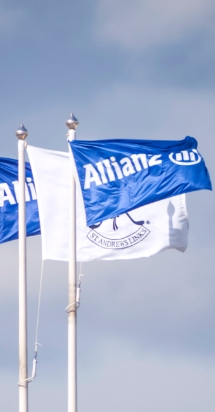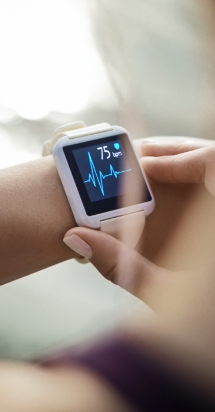Millennials are an incredibly diverse generation, in need of a nuanced understanding and marketing
Concerned about their health, social causes and the environment, they are realists who are settling into a more established mid-life groove
Data comes from Allianz Partners’ latest Customer Lab research which surveyed +11K consumers across Mexico, Thailand, Switzerland, Austria and Singapore in spring of 2021
Who are Millennials?
Myth #1: Millennials are a monolith
Reality: They are an incredibly diverse generation, in need of nuanced understanding and marketing
There is a tendency to view Millennials as a homogenous bloc, with common interests, shared characteristics, and similar needs and behaviours. However, demographic realities mean that Millennials find themselves in quite radically different contexts depending on whether they have a child or not. The arrival of a child is a major tipping point in terms of behaviors and attitudes for Millennials, and their interest for assistance & insurance services increases drastically.
For example, since the pandemic, family millennials, those who have at least one child, are bigger consumers of mobility than childless millennials, including shared mobility and electric vehicles, with 15% of family Millennials owning an electric or hybrid vehicle (vs 6% Young Millennials) and 37% using a bike or scooter sharing (vs 23%). In addition, family Millennials are more likely to work from home (73% vs 54%) since the pandemic, and are almost twice as likely to try teleconsultation (27% vs 13%).
Myth #2: Millennials are the optimistic architects of the future
Reality: They are realists concerned about their health and wellbeing
Millennials have endured two global crises (2008 financial crash and the COVID-19 pandemic) in little over a decade, and many have concerns about their health and wellness (both physical and mental). Looking to changes brought on by COVID-19, 63% of Millennials want to take a more active role in the management of their health & well-being. They also expect support in managing their health, with 58% of Millennials expecting more from their employer in terms of holistic health, hygiene and well-being solutions than pre-pandemic.
In addition, their own parents are now moving into later life, so they are increasingly conscious of the need to provide care, with 43% of family Millennials stating that they need medical care or assistance for a family member.
Myth #3: Millennials are a restless generation, endlessly changing
Reality: They are settling into a more established mid-life groove
A combination of getting older, new responsibilities and the world-stopping pandemic have led Millennials to reflect on putting down roots. They are also very brand-loyal, given that a brand delivers on its promise. We see that 64% of family Millennials, and 47% of childless Millennials are loyal to their insurance companies, while 67% of family Millennials and 51% of childless Millennials feel well covered by their insurance policies or assistance contracts.
In addition, their own parents are now moving into later life, so they are increasingly conscious of the need to provide care, with 43% of family Millennials stating that they need medical care or assistance for a family member.
Myth #4: Millennials are entitled and self-centred
Reality: They are the most engaged and active generation around social and environmental change
The popular media-driven perception has characterised them as an egocentric, “me me me” generation, focused on individual fulfilment, self-improvement, and self-care. While it is true that they remain committed to self-betterment, Millennials are, by far, more socially and environmentally-conscious than their predecessors, out-indexing both GenXs and Boomers on views on social justice (BLM, LGBT rights, income equality etc.) and ecological topics.
However, they are also arguably more likely to turn their convictions into action, able to make purchasing decisions with the power to change corporate behaviour. In terms of the environment, 57% of all Millennials try to make significant efforts to limit the impact of their lifestyle on the environment. Around travel, 59% of Millennials are more sensitive to the environmental impact of their travels, with 55% planning to travel less and 57% closer to their home. And they have taken some action to reduce the environmental impact of their mobility, with 26% of family Millennials having bought a bike since the pandemic (vs 16% of childless Millennials).
“Through our research we see that Millennials are not just one big homogeneous group. Their needs change as they have children, for example their mobility needs increase, with car usage and micromobility usage going up; Family Millennials are more likely to work from home and have renovated their homes to meet the new demands of the COVID context. This research confirms that we have to address the different life stages within this group and tailor our offers accordingly,” said Alexandra Yanez, Head of Strategic Marketing and Consumer Intelligence, at Allianz Partners.
“Any customer centric business needs to have an incredibly robust foundation of customer understanding & insights to ensure it adequately captures its business potential. Our customer studies helps us to understand the priorities and expectations of our partners’ key target customers. We can cross-reference our partners’ customer data with our own to understand better their expectations and needs for assistance solutions. Thanks to this data-based approach, we can better meet their expectations, and address any pain points along the customer journey, and also anticipate for the future,” adds Alexandra Yanez.
About Customer Lab
About Allianz Partners
Allianz Partners is a world leader in B2B2C insurance and assistance, offering global solutions that span international health and life, travel insurance, automotive and assistance. Customer driven, our innovative experts are redefining insurance services by delivering future-ready, high-tech high-touch products and solutions that go beyond traditional insurance. Our products are embedded seamlessly into our partners’ businesses or sold directly to customers, and are available through four commercial brands: Allianz Assistance, Allianz Automotive, Allianz Travel and Allianz Care. Present in 75 countries, our 21,500 employees speak 70 languages, handle over 71 million cases each year, and are motivated to go the extra mile to help and protect our customers around the world.
For more information, please visit: www.allianz-partners.com

















